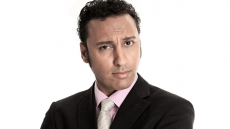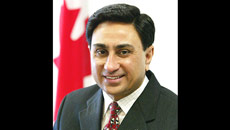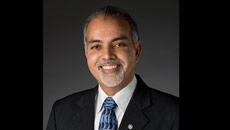History was made on February 1 of 2014 when the World Health Organization (WHO) named their first woman to assume the office of WHO Regional Director for South-East Asia. Dr Poonam Khetrapal Singh, an Indian national, is just that woman, and she is more than up for the role’s many challenges.
This is a very important role for Singh and the future of South-East Asia. Singh's role will weigh heavily on South-East Asian health care issues. Singh will be responsible for addressing the ever-growing demographic and sanitation problems the region faces and educating communities about universal health care coverage and robust health systems. She will also be responsible for sustainable development, building a stronger risk management body and representing the region with regards to global health plans and programs.
Before joining up with WHO, Singh’s career world was busy and bountiful. For more than 20 years, Singh served as a civil servant in India as a member of the Indian Administrative Services. She held the position of Health Secretary of the State of Punjab, where she was responsible for over 22 million people and had to manage a health budget of $350 million US.
In 1987, she moved to the Health, Population and Nutrition Department of The World Bank. Working with WHO is not new to Singh, as she joined forces with them originally in 1998 as Executive Director, Sustainable Development and Healthy Environments Cluster, and as a member of the HQ senior management. Singh then served as WHO Deputy Regional Director for the South-East Asia Region from 2000 to 2013. In February 2013, Singh joined the Ministry of Health and Family Welfare of the Government of India as Advisor for International Health, where her role was to strengthen global health outcomes and assist the Ministry in joining hands with the international health agenda.
To this new role, Singh brings a refreshed and positive outlook, “I take charge as Regional Director at an important moment in the history of public health and at a critical time in the evolution of WHO. I do so in all humility, knowing full well the challenges that lie ahead,” said Singh.
Q&A with Dr. Poonam K. Singh
Q: How do you view South-East Asia’s current health care position?
A: “Our diversity is a rich one. We belong to a region that is blessed with some of the best health experts, state-of-the-art collaborating centres, finest medical facilities and a booming pharmaceutical industry.”
Q: How do you feel about working together with other countries to aid in South-East Asia’s health care progress?
A: “In this era of interdependency and cooperation, stronger voices are generated through alliances and partnerships. The tsunami demonstrated the multi-sectoral and multi-country coordinated support for immediate response and rapid recovery. We will strengthen existing partnerships and engage in new ones.”
Q: What is your vision for South-East Asia’s health care position on a global scale?
A: “My vision is to partner in eliminating gross health inequalities and enhancing human welfare. My vision is to augment the capacities of all Member States so that our Region is recognized for its intellectual vigour and evidence-based decision-making. My vision and determination are to make the WHO South-East Asia Region an excellence-pursuing, responsive and accountable organization. My vision is to make our Region globally known as a leader in public health.”






